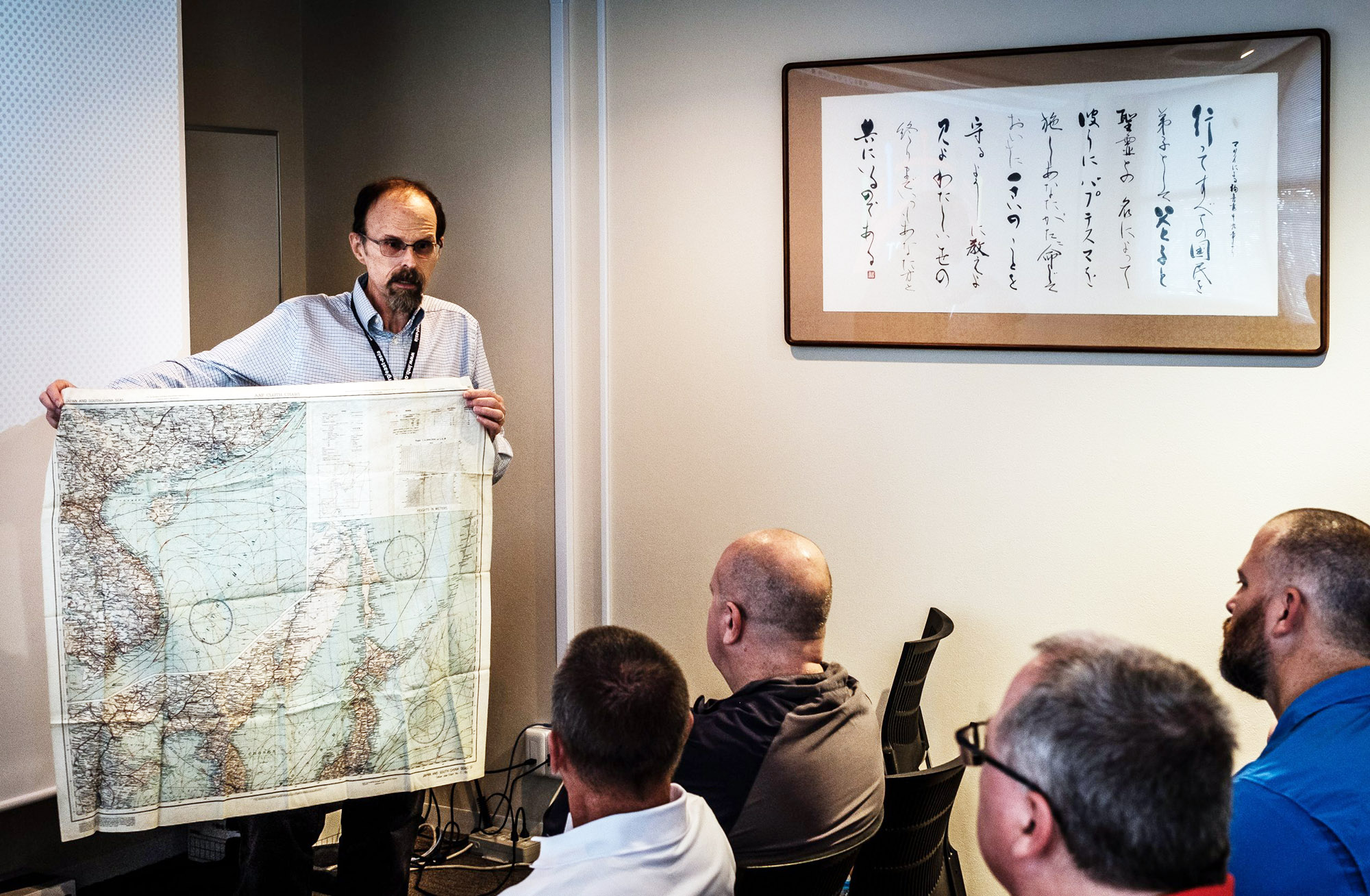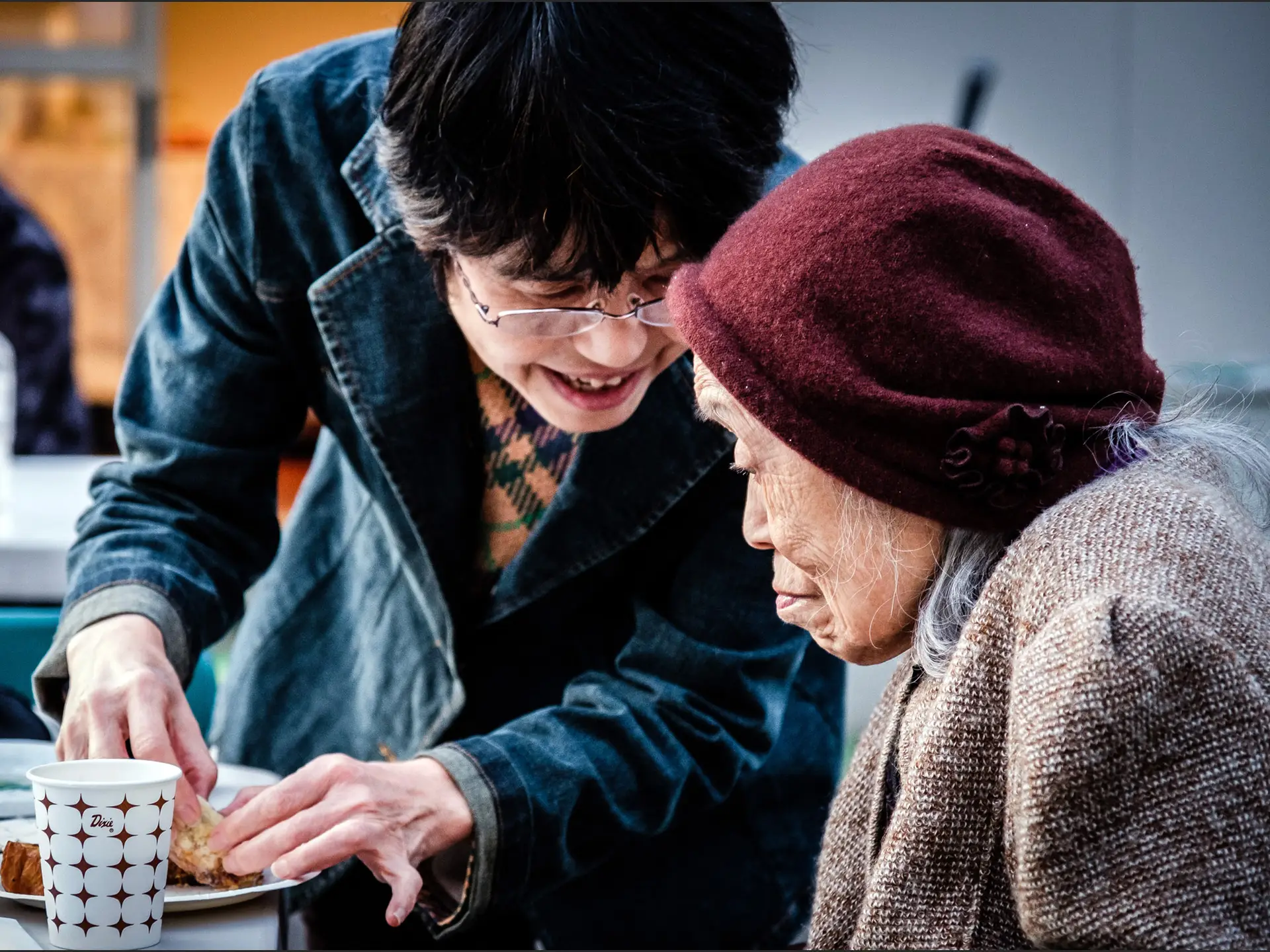JAPAN – The Walkers’ family history was intertwined with Japan long before they landed there. Cornelia’s father was an Army Air Force pilot who flew bombing missions in Japan during World War II. Carlton Walker’s father was in the infantry and served in Japan after the war officially ended. He was tasked with checking homes and public places for weapons.

Carlton remembers his father’s compassionate heart for the Japanese people.
“He never spoke critically of the Japanese. In his mind, they were the most hard-working, disciplined, studious people in the world. He learned a little Japanese and would still try it out on us up until the last years of his life,” Carlton said.
Carlton and Cornelia Walker, IMB missionaries, have devoted 40 years of their lives to telling the Japanese people about God’s love for them.
When Cornelia’s parents visited them in Japan, Cornelia and Carlton introduced her parents to the Yamakawas, a couple from their church. Mrs. Yamakawa knew Cornelia’s father, Dr. Graham, was a pilot and had a role in bombing Japan during the war. She shared how she still remembered the sounds of the Grumman aircraft as they flew overhead and how much fear that caused her as a young girl. The former pilot was touched that she remembered both the name and the sound of that particular aircraft, because he operated those same planes.
Dr. Graham turned to Mrs. Yamakawa and said, “I am so sorry that I had a part in killing your people, causing fear in your heart, and damaging your beautiful country.”
Mrs. Yamakawa replied, “Sir, you were doing your duty, and we don’t hold it against you.”
On that day, an American man and a Japanese woman found forgiveness and reconciliation.
“Two different people, who were destined to be enemies, were friends that evening,” Carlton said. “It is remarkable to me that the generation who lived through World War II holds so few grudges against the United States.”
Carlton said Japanese people have a deep understanding of duty and obligation, and frequently these core values override what they see as the luxury of personal opinion and feelings. The duty to serve one’s country surpasses the personal consequences of actions.
“It is our desire as missionaries that the same country that barters and trades in obligation and duty will soon come to Christ in record numbers and their commitment and loyalty to Christ will be an inspiration to all,” Carlton said.
Trading duty and obligation for grace
Making personal and individual decisions goes against Japanese cultural mores, so choosing to follow Jesus, not out of a sense of duty, but because of a change of heart in response to the grace and mercy of God, is difficult for Japanese people.

“We speak of the amazing freedom, the no-strings-attached acceptance and the unconditional love that Christ provides, which is, in essence, the good news of the love of God found in Jesus,” Carlton said. “For those who struggle with layers and layers of duty, obligation, responsibility, and pressure to conform, we voice the good news that we can come to Christ just as we are.”
However, one of the major challenges for Japanese is that this free gift sounds too good to be true. Or if it is true, then it must cost something. In Japanese culture, gifts come with the obligation to give something in return.
“Japan is a reciprocal society. Generally speaking, when a Japanese receives a gift, they mark it down figuratively and often literally. If you give me something today, then I feel an obligation to give you something of equal value,” Carlton said. “It won’t do if I give you less in return. Or if I give you far more in return, I obligate the other person, which often serves to make them uncomfortable.”
“So, often we present Jesus as the one who breaks this endless cycle of obligation,” Carlton said. “We can never pay Him back enough, even if we tried, so just rest in the reality that He will not love us any more if we do or don’t. One can truly learn how to love recklessly and extravagantly when we are freed from obligation, duty, and shame.”
Taking grace to the business world
Carlton aims to share this gift of God’s grace that is free of obligation with Japanese businessmen – a demographic that operates within the confines of duty and obligation. Businessmen work long hours, and their jobs revolve around their obligation to honor their supervisors and their duty to provide for their families.
Carlton and his local ministry partner have made inroads into the business community through social media campaigns, seminars and visits from a U.S. Bank executive who frequently travels to Japan to partner with Carlton. They have started inductive Bible studies for businessmen in five areas of Tokyo. The studies give businessmen who’ve committed their lives to Christ the tools, and eventually the roles, to lead the groups.
Though there are growing numbers of Christian men in Japan, women comprise two-thirds of the church there. Carlton’s passion is to see more Japanese men commit their lives to Christ.
Sharing God’s grace during the Olympics
The 2020 Olympics in Tokyo will give the Walkers and other IMB missionaries in Japan an opportunity to share the gospel with many more Japanese people. Volunteer teams from the States will join IMB missionaries and Japanese Christians to spread a message of hope and grace that transcends personal and national duties. Ongoing engagement with the people they meet during the games will be a long-term strategy of IMB missionaries, Japanese churches and English-speaking churches.
Carlton, who is looking forward to serving during the Olympics for a second time, recalled the 1998 Winter Olympics in Nagano.
“It was a marvelous time because I got to be with Japanese people, and that’s who I’m called to be working with,” Carlton said. “That’s what makes me alive, that’s what makes me cry, when I realize there are not as many here [in the church] that need to be.”
And Carlton shared his vision for the future of the Japanese people.
“I dream of the day when Japanese people will stand up in heaven and say, ‘Seinaru kana, seinaru kana, seinaru kana’ to the Lord God in heaven, which means ‘Holy, holy, holy Lord God’ in Japanese,” Carlton said. “That’s what I want to see in heaven.”
Join the Walkers in prayer for the Japanese people. Pray that they will gladly receive God’s free gift of grace. Order IMB’s prayer guide for specific prayer requests for Japan.
Visit the Connect 2020 site to find out how you can be involved with the ministry of IMB missionaries during the 2020 Summer Olympics in Tokyo.
Written by Baptist Press, the official news service of the Southern Baptist Convention.

